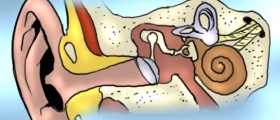Introduction
Dizziness is a medical condition commonly characterized by loss of balance, a feeling of faintness and vertigo. Vertigo is another medical condition in which a person experiences a disturbance in the balance between the sense movement, changes in the head position and the balance mechanism in the vestibular system, which is located in the inner ear. Some cases of vertigo may also be accompanied by imbalance, vomiting and nausea.

Causes of Vertigo
Vertigo may be induced by numerous different types of causes. One of the causes is acoustic neuroma. It is a benign growth on the vestibular nerve and is commonly characterized by imbalance, dizziness, tinnitus or progressive hearing loss.
Migrainous vertigo is another scenario in which a person experiences migraine accompanied by episodes of vertigo and dizziness. Another medical condition which may be held responsible for the onset of vertigo is called Meniere’s disease. It is characterized by an excessive buildup of fluids inside the inner ear. It is usually accompanied by episodes of dizziness which may sometimes last up to several hours.
Inflammation in the inner ear is another possible cause of vertigo. It can be characterized by symptoms such as imbalance, vomiting, nausea and constant and persisting vertigo which may last for days and cause the person to stay in bed all the while. This condition may also sometimes be accompanied by sudden hearing loss, and in such cases it is referred to as labyrinthitis. The good thing about this condition is that it commonly clears up all by itself.
Another medical condition which can be affiliated with the onset of dizziness is called benign paroxysmal positional vertigo. It is actually the most common cause of vertigo.
There are also several other possible causes of vertigo and those include multiple sclerosis, brain hemorrhage and stroke. In such cases, vertigo is commonly accompanied by certain other serious medical problems such as severe balance problems, limb coordination problems, facial numbness, facial weakness, slurred speech and double vision.
Other Info
Feeling of faintness is medically referred to as presyncope. It can be caused by numerous different factors but the most common ones include inadequate output of blood from the heart and drops in the blood pressure (which are medically referred to as orthostatic hypotension).
- Among 1000 COVID?19 patients admitted to the Mount Sinai Hospital, the incidence of syncope/presyncope was 3.7%.
- Syncopal episodes were categorized as (a) unspecified in 59.4% patients, (b) neurocardiogenic in 15.6% patients, (c) hypotensive in 12.5% patients, and (d) cardiopulmonary in 3.1% patients with fall versus syncope and seizure versus syncope in 2 of 32 (6.3%) and 1 of 33 (3.1%) patients, respectively.
- Syncopal events were categorized as unspecified in more than half (59.4%) of the patients with the remaining being attributed mainly to neurocardiogenic, hypotensive etiologies.
- Only one of 32 patient had cardiac syncope related to new onset atrial fibrillation and anterior wall ST?elevation MI.
- Compared to an age and gender?matched control group, the only significant differences noted in the study group were a lower heart rate at admission, a lower systolic blood pressure at admission, and a lower need for escalation of care to the ICU level. There were no significant differences in all the other parameters including need for assisted ventilation or incremental oxygen requirements, and there was no difference in mortality.
Loss of balance is medically referred to as disequilibrium and it can be caused by anxiety disorders, inner ear disorders, various types of medicaments, neurological conditions, joint and muscle problems, sensory disorders and inner ear problems.

















Your thoughts on this
Loading...